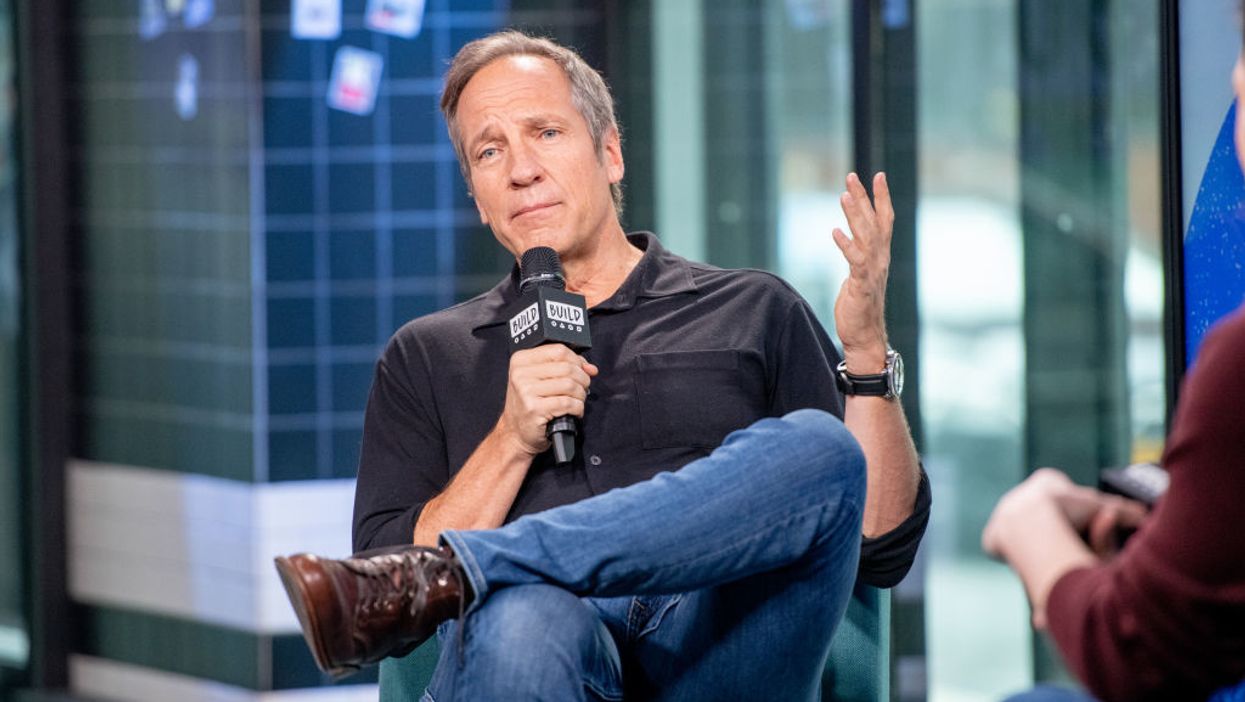
Photo by Roy Rochlin/Getty Images

That makes a lot of sense
"Dirty Jobs" star Mike Rowe is countering what he suggests is media-driven hysteria about the coronavirus pandemic, saying he is "concerned" but not "petrified" nor living in constant fear of something he cannot necessarily control.
In a lengthy exchange posted to his Facebook Wednesday, Rowe responded to a fan who asked: "Is it really so important to film a television show in the midst of pandemic? ... Don't you watch the news? More and more cases every day — aren't you concerned?"
In response, Rowe said, "Of course, I'm concerned ... I'm just not petrified" before explaining that the coronavirus case and death numbers need to be put in context.
Rowe pointed to an interview Joe Rogan conducted in March with Dr. Michael Osterholm in which Osterholm, an international recognized expert in infectious diseases, estimated that there would be 100 million coronavirus cases and 480,000 deaths in the U.S. in three to seven months even if the country successfully "flattened the curve."
Rowe said that after working through the four stages of grief — denial, anger, bargaining, and depression — he came to accept the possibility of those numbers.
"I've accepted those numbers," he said. "Unfortunately, millions of others have not. Many people have no sense of where this is headed, and I understand why. They've been betrayed by a hysterical media that insists on covering each new reported case as if it were the first case. Every headline today drips with dread, as the next doomed hotspot approaches the next 'grim milestone.'"
By removing the shock factor from every reported new case and accepting the reality of the situation, Rowe says, he is now able to "evaluate the risk and make [his] own decisions," within the law, of course.
He compares this type of risk analysis with how millions of Americans are able to get into cars and drive them places every day despite the inherent and well-documented dangers of doing so.
"Again, don't misunderstand. I'm not ignoring COVID, or downplaying COVID, or pretending the risks at hand aren't real. Nor am I comparing COVID cases to car accidents," Rowe said. "I'm simply comparing the fear of each to the other, and the fear that always accompanies uncertainty.
"I don't want to get this disease or give it to someone else, any more than I want to be in a car wreck that injures someone else," he continued. "But I've accepted certain things about the pandemic, and now, I've gotten used to the risk as I understand it. I take precautions. I get tested as often as I can, and if I can't physically distance, I wear a mask — especially around higher risk people. Likewise, I wear a seatbelt, obey the speed limits, and check my mirrors before changing lanes. Yes — I'm aware that we'd all be a lot safer if we kept our cars in the garage. I'm also aware we'd be a lot safer if we all kept ourselves in the house. But that's not why cars, or people, exist."